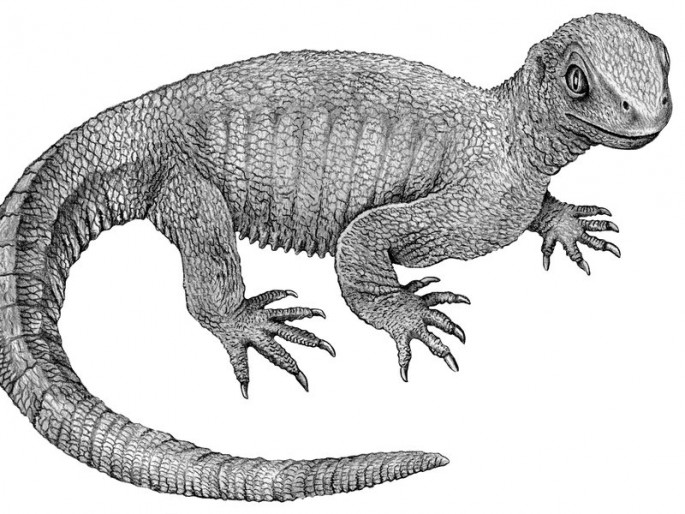Paleontologists reveal a 240 million year old fossil that is believed to be an ancient ancestor of modern day turtles however there is one unique characteristic of this creature during its evolution, it apparently does not possess a shell.
This ancient turtle called the Pappochelys rosinae which translates as "grandfather turtle" reveals the fossil of the animal that shows that wide ribs located in its trunk and thick ribbed structures that cover its belly like an armor.
Previous studies suggest that turtle shells evolved from bony outer structures that have been growing from the vertebrae and ribs. However, researchers suggest that the grandfather turtle was in the middle of an evolving state where soft backed animals transformed into hard shelled turtles we know of today.
Scientists believe that this shell-less turtle fills a crucial evolutionary gap in turtle ancestors and their modern day counterparts.
According to Hans Sues who is a vertebrate paleontologist of the Smithsonian Museum of Natural History, this is an amazing link between the earliest turtle precursors called the Eunotosaurus who lived in South Africa some 260 million years ago where turtles later developed a full outer shell.
Researchers have uncovered the first fossil of this turtle at a lakebed in southeast Germany where other ancient specimens are also found.
Other paleontologists believe that the turtle is some kind of living dinosaur similar to birds, where further analysis of the grandfather turtle suggest that the modern day turtle are actually closer relatives to snakes and lizards.
Sues adds that the hard turtle shell may originally evolved first in water dwelling reptiles. He says that its major purpose is to protect all its vital organs and also to control the animal's buoyant properties by adding weight to the animal.
Researchers also believe that the grandfather turtle is estimated to measure some eight inches long and could be similar to the size of the modern box turtle. This study is published in the journal, Nature.



























